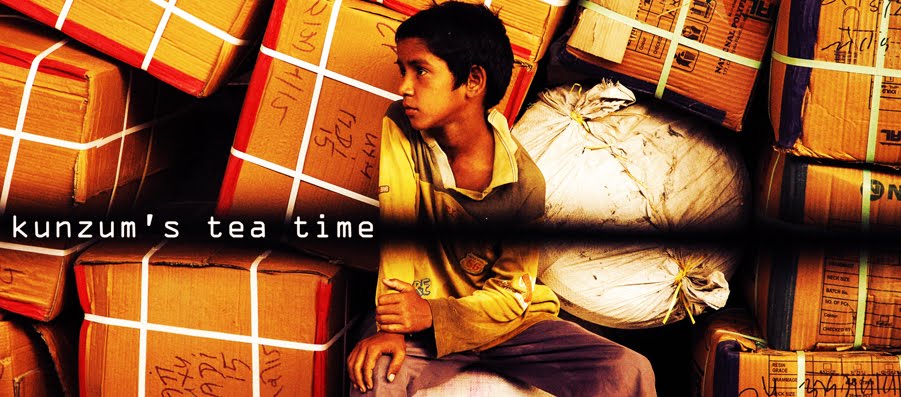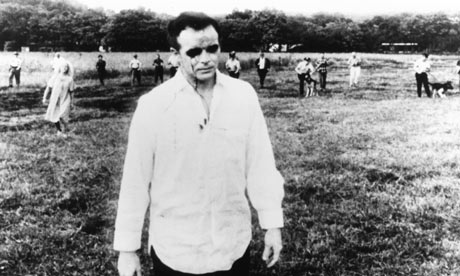Alejo:
Protection.
Tristán:
Sadness.
Izarre: A star.
Weak. Tristán felt weak. He felt the heat
squash his shoulders and feebleness was his sole companion. Everyday. He
couldn’t even think about his complaining, because he had always this endless
torment of being broken into little pieces. Tristán felt he was wasting away,
now seeming older. His worries turned into sweat drops seeping out through his
skin.
It was another night in Granada.
Tristán’s head was not giving him a rest. Thinking and thinking. Deeming
himself. He is here because he left home. He left home because he felt the
deeply need of building his own space. He felt that way because he was blocked.
For the first time he was feeling a little bit more free and lonely. But it wasn’t that easy.
It was a new night in Granada. Tristán
and Alejo were lied down in a wood bench on the balcony, almost naked. The
stars were visible. That morning rained and the night looked fresh and
cloudless. More than ever, along those four months in Granada, Tristán was
feeling homesick. He missed everything he had at his home. He was remembering
such little things he wouldn’t pay attention when he was there. “The smell of
the road it’s different here”, he thought. Also the light was different, and
the sound of the silence too. Everything was different except the sky. He was
gazing at the stars when he remembered Izarre. He missed her. “She’s expecting
me but I’m not coming back”. Like a refugee in no man’s land, far from the
mountains, Tristán knew that he was not coming back to his village. He realized
when he thought about that name - Izarre. What Izarre meant to him was enough
reason for not coming back. And he felt not up to talk openly to Alejo,
the man who was sharing the pleasant nighttime under the sky. He didn´t want to
talk about his feelings and besides, Alejo didn’t know a thing about his past,
just what he could saw from him and what Tristán wanted to show him.
They had been lied down for a while
enjoying the dark. Alejo turned to Tristán.
”Try not to think for five minutes in
absolutely nothing.” Alejo held Tristán’s head and gazed him mercifully.
”It’s not that easy.” Tristán said and he
flashed him that bitterness look. “The simple fact of considering not thinking
in anything for five minutes it pushes me up to think compulsively.”
A short silence reigned. Tristán turned
his head back to the stars, back to that blurry star in the dark.
”It takes me so much letting my mind a
blank.” Tristán went over his resentment.
”OK! Two minutes. You know you can. Don’t
think in anything during two minutes.”
Alejo was convinced in proving some kind
of therapy on Tristán.
Tristán’s knew that he denied trying
things harder but he also knew that he needed other issues, other context or
another path where he could had started again and better.
Tristán looked at Alejo with the
intention of showing him his resentment to the test.
”Think in anything else. Think in
something it’ll distract you.” Alejo said to him.
Tristán’s view did already stop in front
of other stars before Alejo finished talking. He just found Orion’s
constellation and stared at it. He was dazzled.
”Think in the stars.” Alejo said.
”I’m already focusing in Orion”. Tristán
pointed him with the fingers the ethereal place where the constellation was
supposed to be. “Can you see it? Can you recognize it?”
”Yes.” Alejo noticed and gazed at Orion.
“In fact, it is the only constellation that I’m able to recognize.”
It was a long moment. They were alones,
hugged, semi-naked and in silence, gazing the immensity. Converged first in
Orion and then in the rest of all, like searching something, any kind of signal
or reply.
”Why do you think people don’t take a
break to gaze at the stars? This way, nothing else, lied down and relaxed
looking up to the sky, becoming not to worry about things.” Alejo was decided
to enjoy a nice and deep stay.
”Routine and stress move us I guess. We
are not capable of enjoying little things like tasting a cigarette’s drag or
just appreciate what surrounds you.” Tristán continued.
Even Tristán was incapable of doing it.
While he was spitting out all those believes, he was knocking on his head
trying to get his own awareness. He wasn’t able to enjoy that precise moment.
”The universe is here for us and we don’t
know how to use it. Any depress worry or discomfort fades away when we gaze at
the stars.” Alejo was feeling seduced by Orion.
”There’s no mean to say that what you
just said make us trivial. Something that huge above us remains us to nothing
when we raise our look to the top.” Tristán carried on.
A Big silence again. An easy and cozy
silence at least. Tristán didn´t remove his look from the sky, in spite of the
fact that Alejo was searching desperately a complicity look from him. “What the
fuck is he thinking about?” Alejo thought. He was feeling rejected and
disappointed from Tristán in many occasions and that kept him very nervous, but
he was able to stand it. Sometimes, Alejo didn’t understand Tristán, despites
he was making to much effort, but he never wanted to press him. He knew that
Tristán was living a weird experience in another place and with a man - with
him. He could felt his weakness and worries but he was there to protect him.
Lain down and hugged to the man he loved was enough for Alejo.
Alejo sweetly nipped his lips trying to
look for the best words to say what he wanted to say in that moment.
”Before meeting you I was looking at
Orion from here without knowing that you were looking at the same stars too.”
Tristán listened to Alejo’s words a
repeated them for himself. He looked at Alejo and shyly smiled but he couldn’t
stand that look for too long so he went to Orion. But he kept that smile, feeeling
sympathy for him.
”Now I am predestinated to remember you
every time I look at Orion.” Tristán said after a short silence.
Alejo stopped and thought for a minute.
He knew some kind of sympathy was meant on what Tristán just said, and that
annoyed him in somehow. He didn’t want to go and asking him why he just said
that dire words full of compassion and sarcasm. It was an awkward moment so he
changed the subject.
”Do you remember in the movie The Hours.”
Alejo went with a particular scene from that movie which both of them had
watched it recently. “When Clarissa, Meryl Streep, says to her daughter that
she was remembering that morning when she woke up in dawn with that sense of
possibility feeling and she was thinking that it was the beginning of
happiness, where all starts and more will come. But it wasn’t the beginning
of…?”
”Yes.” Tristán interrupted him. “It wasn’t
the beginning of happiness. It was happiness”. Tristán stopped for a while to
think about those words. He felt so sad.
”It’s too sad, Alejo.” Tristán said.
”What?” Alejo was so deeply inside of his
own words that he didn’t listened what Tristán just said.
”It’s such a depressing feeling.” Tristan
repeated. “When you are in the top of the mountain you believe yourself being
in the bottom of it climbing to reach the peak. You’re living a glorious moment
in your life. Things go quite good and you feel relieved because you believe
being in a chance. But new stones appear in the road, it is nothing new, you’ll
have to either kick them or carry them. We think a lot in the future without
knowing how to enjoy the present, without taking a break to look up at the stars.
It’s like when you take dinner after being cooking for two or three or whoever
there are and while you’re eating dinner you’re thinking what to cook next
day.”
In somehow Tristán’s posing reminded some
tale to Alejo.
”Do you know about the ant and the
cricket tale?” Alejo asked Tristán.
”It seems familiar to me, but tell me.” Tristán
responded him. He had heard about some cricket and an ant tale but he couldn’t
remember it at all. He was wondering some kind of fable about the hard workers
versus dreamers.
”Ok!” Alejo cleared one’s throat before
starting to narrate the whole story. “One hot summer in some lovely place a
cricket was singing cheerfully on the branch of some tree while down below many
ants were working hard to recollect grains for the wintertime. The cricket,
which seemed to be astonished, spoke to the ants and asked them “Why are you
working so hard when you can enjoy peacefully this lovely summer day? Come and
sing with me.” But the tired ants went
on with the hard work and told him “We must collect all the grains we can to
survive the cold winter.” The cricket spent the whole summer singing and
enjoying summertime and when the winter came he went to the ant and asked him
to share some of his grain with him, so the ant asked the cricket “And what was
you doing all this time back? You weren’t keeping food for the winter?” The
hungry cricket told him “I was singing gladly songs all the summer.” The ant
smiled and said to the cricket “Singing, huh? So go dancing now!”
Tristán remembered that fable after Alejo
recited to him. His face filled with a contemplative smile thinking about the
meaning of the tale. Alejo was staring at him and he couldn’t resist the act of
resting his head on his chest. He hugged him strongly and kissed his cheek
sweetly. Tristán responded, he nicely closed his eyes and kissed him on his forehead.
He held him lovely. For the very first time, Alejo felt Tristán’s protection.
”So, what are you, the ant or the
cricket?” Alejo asked.
”We both are the cricket” Tristán didn’t
think it twice and he laughed openly. Alejo followed him with the laughs.
”Yes, we both are the cricket but I don’t
want to be the ant.” Alejo said convinced and proud.
Jordi Boldú. Arguineguín, November 24, 2011.














